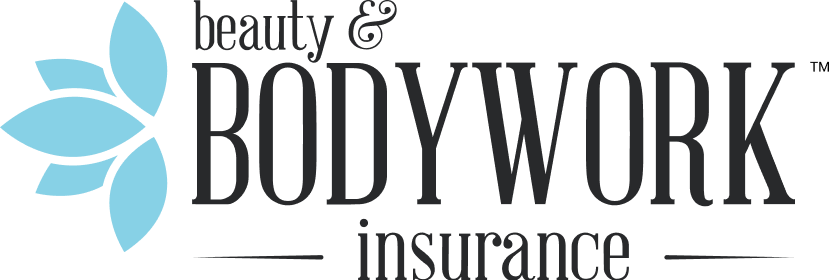You made it! You graduated from beauty school and now you’re ready to go out there and conquer the cosmetology world. Except, you may not feel as prepared as you had expected.
Beauty school prepared and trained you for a lot of things: hair styling, trends in the industry, how to do pedicures, etc. But now you’re going out into the real world, and graduating to the real world requires some more lessons for you to learn. The following are 10 things that beauty school probably didn’t teach you and that you still have to learn.
1. Understand that earning a diploma doesn’t mean you are now an expert
Yes, it is true that you have accomplished something awesome. You graduated from beauty school and it is probably one of the highlights of your life. Go ahead and pat yourself on the back, but know that you still have a lot to learn. As you practice in a salon or a place of your choice, you will get much more experience than you did in school. With that comes a lot of learning and expanding your palette of skills.
2. You are going to be a boss, and you should probably be a tough one
The odds are very good that at some point in your career you are going to be an independent contractor. This means that your boss is going to be…you! There won’t be someone else calling you and telling you to get out of bed and come to work. So, while it might be tempting to give yourself the day off or let yourself slack a little, it is best to resist the temptation and be a tough boss. You have to be responsible because, well, the success of your business is all up to you.
3. You are going to be a small business owner
As an independent contractor, you are a small business owner. This means that you and nobody else (ok, maybe a spouse can help a little) are responsible for taxes, licensing, registration fees, marketing, accounting, and insurance. You need to not only become an expert in the beauty industry, but you also need to learn good business practices in order for your business to succeed.
4. You’re going to have negative feedback
You need to know how to deal with it. You may have already experienced some of this in school, but you need to understand that nobody’s perfect, including you. And some people out there will be quick to let you know about your shortcomings. Don’t let mistakes get you down. Don’t let an angry client ruin your day. Find a way to deal with negativity, whether it is eating chocolate or talking to a friend. Learn from the experience, and then get over it as quickly as possible.
5. Your job is going to be tougher if you aren’t networking
How nice would life be if potential employers automatically hired you, every day clients just came into your salon and stayed with you for life, and other beauty workers came to you and you became friends for life? That would be nice, but it’s not real life. In reality, getting hired can be difficult, and you have to work hard to find and keep clients. Networking allows you to meet new people and keep them in your contacts. It can really help you in your career and in your personal life. You can network by carrying business cards with you that you carry around and pass out to new people you meet, get your business on social media so you can connect with people you wouldn’t normally have the opportunity to connect with, and consider getting a LinkedIn account to find new clients and connect with fellow hairstylists.
6. You can’t treat your professional life like you might have treated school
When you were in school, your teachers probably didn’t care too much if you missed a few classes or showed up a little late. Having the same standards in your professional life is a good way to get fired or lose clients. Being professional means that you keep your appointments and are on time. Make sure that if you don’t already have this habit, develop it quickly so that you can start off on the right foot and be a working professional.
7. You should very rarely (if ever) work for free
Ok, it’s one thing to give your spouse a haircut or your mom a styling. You might even be alright with giving other family members at least a reduced rate, but if you start working for free or discounted prices all the time, your business is going to fail. Find prices for your services that are realistic and will give you a profit, and then don’t feel bad about them. Stick to your prices and you can have a nice, long career.
8. You need to make your work stand out
There are likely hundreds, and possibly thousands, of other beauty professionals in your area. You don’t want one of your clients to assume that if you are not available, they can just go to someone else and get the same service. Differentiate yourself in some way, whether you are the go to hair colorist or you are people’s choice in an emergency because you are always available.
9. Time = money
Let’s do some math. I’ll try to make it easy for you. Say you normally take two hours to color someone’s hair and you charge them $100. That’s $50 per hour. Now, say you took three hours to do the hair and still charged $100. That’s about $33.33 per hour. What if you took four hours? $25 per hour. Now, say for some reason it took you four hours today and you had to cancel another client’s appointment for the same service. There’s $25 you lost because it took you two extra hours and another $100 because of the cancelled client. $125 gone, just like that. Time is money, and don’t let anyone tell you differently.
10. Conversation goes a long way
Learning how to converse with people is one of the most useful tools in a beauty worker’s kit. If your clients feel that you have a genuine interest in their lives, they will come back to you again and again. Granted, some clients prefer not to converse while they’re getting their hair done, but for the most part being able to talk to people is a useful skill, not just for your career but your personal life as well. Take the time to form relationships and friendships with your clients, so that they’ll keep coming back to you.
Are there other lessons you wished you had learned in beauty school? Do you have any useful advice for beauty workers just starting out in their career?







